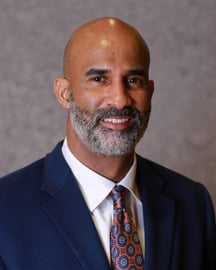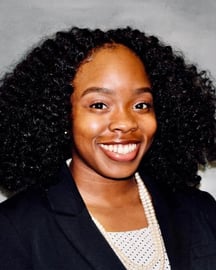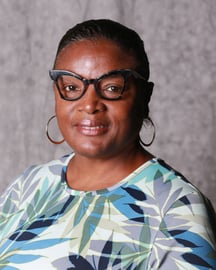- About
- Academics
- Admissions & Aid
- Life
- Research
- News & Events
The Program at a glance
Help healthier people build a world of wellness.
Department
Learn More
Kinesiology, Sports Studies, and Physical Education instill an appreciation for the promotion of quality health, wellness, nutrition, sports-related activity, and physical wellness.
Earn the Major
Learn more
A bachelor’s in kinesiology, sports studies, and physical education requires eight semesters of course work, including a framework of general education requirements and 62 academic hours of major course requirements.
About Kinesiology
-
Overview
KINESIOLOGY, SPORTS STUDIES, AND PHYSICAL EDUCATION INSTILL AN APPRECIATION FOR THE PROMOTION OF QUALITY HEALTH, WELLNESS, NUTRITION, SPORTS-RELATED ACTIVITY, AND PHYSICAL FITNESS.
We support the interests and development of future professionals seeking knowledge in multiple disciplines related to human performance, recreation and leisure services, teaching, coaching, and sport management.
The department promotes lifelong learning and participation in human movement that enhances the quality of life for all. Our goal is to provide students with a solid understanding of health and human performance that helps them become competent and productive leaders of change in a variety of professional roles within fitness, exercise and health science, and other professions.
Majors are required to hold membership and actively participate in the James P. Haines Society majors club and are encouraged to hold membership in regional and national organizations. All students with 25 credit hours must have a minimum cumulative 3.23 GPA. Majors who acquired 100 hours are required to sit for the senior exit examination.
Academic program honors are awarded to seniors who:
- Maintain a 3.23 GPA or higher
- Successfully participate in or complete a supervised experimental research project
- Complete an authorized independent study project or internship within a selected organization
- Satisfactorily pass the senior exit examination
Majors with stellar academic records are selected for induction into Phi Epsilon Kappa Fraternity. This professional fraternity is for people interested in pursuing careers in physical education, health, recreation, dance, human performance, exercise science, sports medicine, and sports management.
-
Outcomes
Outcomes
Upon graduation, students are able to demonstrate a fundamental understanding of kinesiology and are capable of applying knowledge and skills learned. Kinesiology offers a rigorous curriculum that prepares students to engage in scholarly endeavors, interpret data and science intelligence, communicate effectively, and articulate a philosophy important to the health and well-being of self and community. Graduates are prepared to enter professional or graduate schools, or enter the health and fitness industries.
-
Earn the Major
Curriculum
MAJOR COURSE OF STUDY REQUIREMENTS
A bachelor’s in kinesiology, sports studies, and physical education requires eight semesters of course work, including a framework of general education requirements and 62 academic hours of major course requirements. These include four cognate electives to supplement the concentration of the major of study and a grade of C or higher in all major course requirements.
Majors are required to take foundational coursework (HKSP 100 and 162) their first year to prepare them for more discipline-specific areas of study (HKSP 252, 253, 258, 283, and 284) taken in the second year. Students are strongly encouraged to take a Scientific Discovery course (HBIO 101, 105, or 111) by fall semester of their second year as these courses are prerequisites for HKSP 365. Students should then take Scientific Discovery (HPHY 102, 151, or 154) on or before spring semester of their third year as these are prerequisites for HKSP 462 and ensures student remains on track to graduate.
Students take HKSP 321, 381, 365, 357, 382, and 372, year three and HKSP 453, 454, 455, 458, 461, 462, 463 or 456, and 464 to complete degree requirements. To provide a greater depth of knowledge, majors are required to take nine hours of cognate courses. Additionally, majors must take one communication studies course such as HCOM 253, 351, or 353. Majors pursuing careers in health sciences are strongly encouraged to take HBIO 111 General Biology, Statistics 130, HCHE 111 General Chemistry, and HPHY 111 General Physics to satisfy general education requirements and professional school prerequisites.
General Education (Core)
33-48 hoursRefer to the general education requirements for more information.
Kinesiology Major
62 hours- HKSP 100— History and Principles of Health and Physical Education
- HKSP 162— Organization and Administration of Health, Physical Education, Recreation and Athletics
- HKSP 252— Community Recreation (cognate)
- HKSP 253— Programs in Health Education
- HKSP 258— Preventive and Therapeutic Aspects of Sports Injuries
- HKSP 283— Skills and Techniques of Swimming I (Intermediate) (cognate)
- HKSP 284— Skills and Techniques of Swimming II (Advanced) (cognate)
- HKSP 321— Human Anatomy
- HKSP 357— Kinesiology
- HKSP 365— Human Physiology
- HKSP 372— Physiology of Exercise/Activity
- HKSP 381— Skills and Techniques—Individual/Dual Sports (cognate)
- HKSP 382— Skills and Techniques Team Sports
- HKSP 453— Methods and Materials of Coaching Selected Individual Sports
- HKSP 454— Methods and Materials of Coaching Selected Team Sports
- HKSP 455— Tests and Measurements in Health and Physical Education
- HKSP 456— Adapted Physical Education Programs
- HKSP 458— Directed Reading and Research in HPED
- HKSP 461— Methods of Teaching Health and Physical Education In Elementary and Preschool
- HKSP 462— Mechanical Analysis of Motion
- HKSP 463— Methods of Teaching Health and Physical Education in Secondary Schools
- HKSP 464— Sports Analytics
Choose one course from the list below:
- HCOM 253— Public Speaking
- HCOM 351— Professional Communications
- HCOM 353— Interpersonal Communications
KINESIOLOGY, SPORTS STUDIES, AND PHYSICAL EDUCATION INSTILL AN APPRECIATION FOR THE PROMOTION OF QUALITY HEALTH, WELLNESS, NUTRITION, SPORTS-RELATED ACTIVITY, AND PHYSICAL FITNESS.
We support the interests and development of future professionals seeking knowledge in multiple disciplines related to human performance, recreation and leisure services, teaching, coaching, and sport management.
The department promotes lifelong learning and participation in human movement that enhances the quality of life for all. Our goal is to provide students with a solid understanding of health and human performance that helps them become competent and productive leaders of change in a variety of professional roles within fitness, exercise and health science, and other professions.
Majors are required to hold membership and actively participate in the James P. Haines Society majors club and are encouraged to hold membership in regional and national organizations. All students with 25 credit hours must have a minimum cumulative 3.23 GPA. Majors who acquired 100 hours are required to sit for the senior exit examination.
Academic program honors are awarded to seniors who:
- Maintain a 3.23 GPA or higher
- Successfully participate in or complete a supervised experimental research project
- Complete an authorized independent study project or internship within a selected organization
- Satisfactorily pass the senior exit examination
Majors with stellar academic records are selected for induction into Phi Epsilon Kappa Fraternity. This professional fraternity is for people interested in pursuing careers in physical education, health, recreation, dance, human performance, exercise science, sports medicine, and sports management.
Outcomes
Upon graduation, students are able to demonstrate a fundamental understanding of kinesiology and are capable of applying knowledge and skills learned. Kinesiology offers a rigorous curriculum that prepares students to engage in scholarly endeavors, interpret data and science intelligence, communicate effectively, and articulate a philosophy important to the health and well-being of self and community. Graduates are prepared to enter professional or graduate schools, or enter the health and fitness industries.
Curriculum
MAJOR COURSE OF STUDY REQUIREMENTS
A bachelor’s in kinesiology, sports studies, and physical education requires eight semesters of course work, including a framework of general education requirements and 62 academic hours of major course requirements. These include four cognate electives to supplement the concentration of the major of study and a grade of C or higher in all major course requirements.
Majors are required to take foundational coursework (HKSP 100 and 162) their first year to prepare them for more discipline-specific areas of study (HKSP 252, 253, 258, 283, and 284) taken in the second year. Students are strongly encouraged to take a Scientific Discovery course (HBIO 101, 105, or 111) by fall semester of their second year as these courses are prerequisites for HKSP 365. Students should then take Scientific Discovery (HPHY 102, 151, or 154) on or before spring semester of their third year as these are prerequisites for HKSP 462 and ensures student remains on track to graduate.
Students take HKSP 321, 381, 365, 357, 382, and 372, year three and HKSP 453, 454, 455, 458, 461, 462, 463 or 456, and 464 to complete degree requirements. To provide a greater depth of knowledge, majors are required to take nine hours of cognate courses. Additionally, majors must take one communication studies course such as HCOM 253, 351, or 353. Majors pursuing careers in health sciences are strongly encouraged to take HBIO 111 General Biology, Statistics 130, HCHE 111 General Chemistry, and HPHY 111 General Physics to satisfy general education requirements and professional school prerequisites.
General Education (Core)
33-48 hours
Refer to the general education requirements for more information.
Kinesiology Major
62 hours
- HKSP 100— History and Principles of Health and Physical Education
- HKSP 162— Organization and Administration of Health, Physical Education, Recreation and Athletics
- HKSP 252— Community Recreation (cognate)
- HKSP 253— Programs in Health Education
- HKSP 258— Preventive and Therapeutic Aspects of Sports Injuries
- HKSP 283— Skills and Techniques of Swimming I (Intermediate) (cognate)
- HKSP 284— Skills and Techniques of Swimming II (Advanced) (cognate)
- HKSP 321— Human Anatomy
- HKSP 357— Kinesiology
- HKSP 365— Human Physiology
- HKSP 372— Physiology of Exercise/Activity
- HKSP 381— Skills and Techniques—Individual/Dual Sports (cognate)
- HKSP 382— Skills and Techniques Team Sports
- HKSP 453— Methods and Materials of Coaching Selected Individual Sports
- HKSP 454— Methods and Materials of Coaching Selected Team Sports
- HKSP 455— Tests and Measurements in Health and Physical Education
- HKSP 456— Adapted Physical Education Programs
- HKSP 458— Directed Reading and Research in HPED
- HKSP 461— Methods of Teaching Health and Physical Education In Elementary and Preschool
- HKSP 462— Mechanical Analysis of Motion
- HKSP 463— Methods of Teaching Health and Physical Education in Secondary Schools
- HKSP 464— Sports Analytics
Choose one course from the list below:
- HCOM 253— Public Speaking
- HCOM 351— Professional Communications
- HCOM 353— Interpersonal Communications
Meet Our Faculty and Staff
Dr. Claude P. Hutto, Sr, Interim Department Chair
.Jennifer Jones, Department Coordinator

Claude P. Hutto
Associate Professor/Division Dean

Stacy Imagbe
Assistant Professor, Tenure-Track

Billette D. Owens-Ashford
Assistant Professor NTT

Joyce L. Terrell
Assistant Professor NTT
